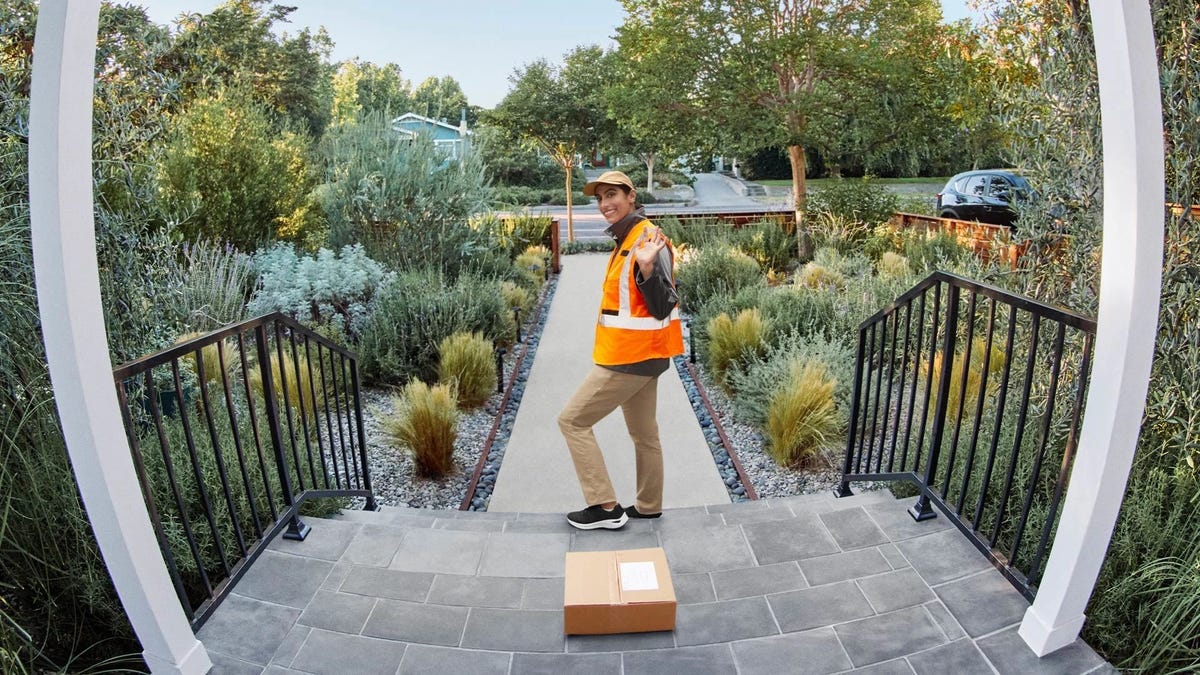Ring, which has drawn ire in the past for sharing home security videos with the police without consent, will be updating its software in February 2024 with one particularly important change. As explained in a Jan. 24, 2024 Ring blog update from the head of the Neighbors platform, Eric Kuhn, the “Request for Assistance” tool, which police had previously used to ask for user footage, will be removed from the Neighbors app.
“Public safety agencies like fire and police departments can still use the Neighbors app to share helpful safety tips, updates and community events,” the blog stated. “They will no longer be able to use the RFA tool to request and receive video in the app. Public safety agency posts are still public and will be available for users to view on the Neighbors app feed and the agency’s profile.”
We reached out to Ring about the update, and their spokesperson had this to add: “As we look to the future of Neighbors, we’re focusing our resources on delivering new product and app experiences that we feel are better fit with Ring’s vision and can better empower our customers to connect with each other, and stay informed by local government and public safety agencies.”
Amazon Ring will no longer share videos with law enforcement, according to a statement from the company.
Previously, law enforcement agencies were able to request user video footage using the Neighbors form to describe a variety of situations where footage could them. This leeway caused privacy-oriented organizations and owners serious concerns about how their data was being shared, potentially without their knowledge. However, with this avenue closed, options still remain for police to view user videos.
Law enforcement can still use warrants and certain emergencies to demand video
Ring’s Neighbor app Request for Assistance feature will be disabled, but there are notable caveats. The first is a special emergency request, a legal option unrelated to the Request for Assistance tool. Police are still able to reach out and ask companies directly for video when it relates to an emergency event, limited to life-or-death situations. Ring’s spokesperson cited serious physical injury, kidnapping, and attempted murder as examples, and noted that these were very rare cases.
As Amazon answered in response to US Senator Ed Merkey’s letter for information on similar legal emergency requests, these requests were left to Ring’s own “good-faith determination” of whether to share footage. At the time of that query (July 2022), Ring had provided video for emergencies 11 times in the past seven months.
Additionally, police and other law enforcement will still be able to secure a warrant or a subpoena to access video footage without consent. A judge must sign off on this permission to seize video, and the warrant should typically specify a day and length of time when any captured footage can be examined and taken.
What you need to do if you have a Ring cam or doorbell
Since this is a direct change by Ring to the tools it provides to police, there isn’t much you need to do. Keep an eye on the Ring blog for more notifications, and watch for the latest privacy news here at CNET to stay updated on the changes.
As the change goes through in February, you should check that your Ring devices are on and connected to receive any firmware updates, and that your Ring app and any other connected apps are updated.
Along with removing the Request for Assistance option, Ring will also be adding new features including Ring Moments that allow users to share more lighthearted video moments and a Best of Ring video collection.
How to improve your security camera privacy
Always look at privacy guidelines created by your security company to see what they allow in the fine print. If you feel uncomfortable with the possibility that a security company would share your footage with law enforcement for any reason, then avoid cameras and doorbells that automatically send captured video to cloud storage. Keep in mind that companies like Google also have an “in case of emergency” policy similar to Ring’s stance.
Instead, use devices that only offer local storage on a connected hub, a microSD card, or similar hardware, such as the Lorex Video Doorbell. If the video doesn’t pass through a security platform’s cloud services, the company cannot easily share it with the police (although it can still be subject to warrants). For more information, see our guide to the best video doorbells of 2024.

